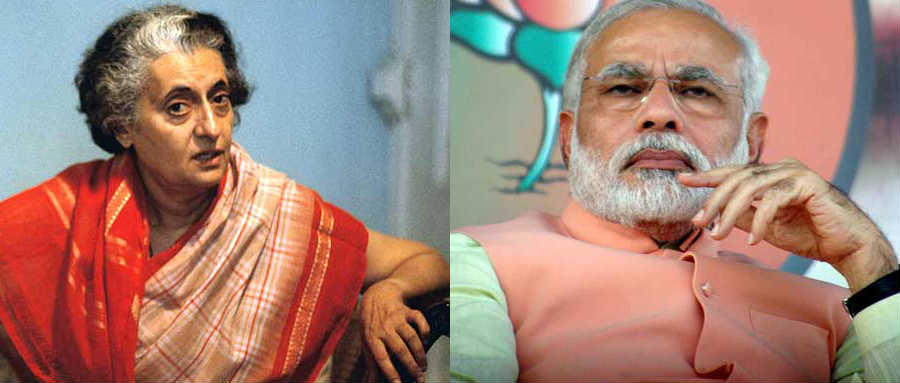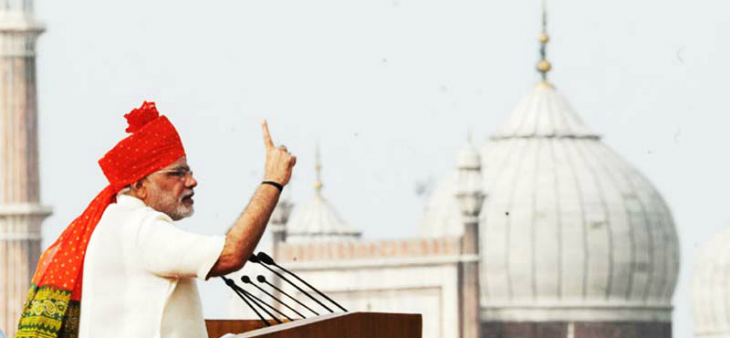BY RSN SINGH
Readers, more so those who have served in the government, need to adjudicate these cases as stated below more on moral than legal parameters.
A retired police officer, who by virtue of being the first lady IPS was unfortunately treated like a celebrity no sooner she was born in the service, is now in her new avtar as social activist associated with a number of NGOs.
As in most cases, the Magsaysay Award conferred on her served as the critical passport to her post-retirement stardom. She began to be invited for talks and seminars on issues concerning corruption and character. It is another matter that she is known to have made no difference to corruption while she served in the police.
She was convinced that that she deserved no less than business class air travel for her lecture and seminar tours. Her sponsors invariably relented. But she invariably travelled economy class, that too by availing 75 percent concession entitled to her by virtue of being the recipient of President’s Gallantry Medal. Nevertheless, she invariably submitted wrong invoice and received money for business class ticket. The difference in amount in some travels was as much as five times.
Now when the misdoings have been discovered, she is making the preposterous, rather disastrous plea that the superfluous money she made was for the purposes of her NGO. Her patriotic heart had no qualms about bleeding other organizations to benefit her own!
The basic reason for humans with corrupt proclivities is that they are selfish in make and have little concern for their fellow humans and countrymen. To serve is not their motive. Such people invoke the interest of some organization or the country to camouflage their misdeeds. They are no different from politicians who siphon money in the name of party funds, which in the same vain as the case under question should be considered perfectly legitimate.
Regrettably this kind of fudging of bills is rampant amongst civil servants. The lady in question seems to have persisted with the tendency after retirement and temptation got better of her notwithstanding her current national and international prominence as one of the key members of Team Anna.
The lady is none other than Kiran Bedi.
Can she be a role model to the youth in this country?
Consider the second case. An officer takes study leave for a course. He completes his course and rejoins his service, i.e. Indian Revenue Service (failing to join IAS), which he joined after being trained as an Engineer at the IIT. Obviously his patriotic heart neither took to engineering nor revenue matters.
After he rejoins from study leave it is, like all government servants, obligatory on him to serve for three years. After lapse of one year he proceeds on leave without pay for two years. He then resigns.
His resignation is not accepted on the grounds that his long leave without pay cannot be included in the post study leave three-year mandatory period. One of the reasons why this three-year mandatory period has been stipulated is that the concerned government department must gain out the knowledge and skill acquired by the individual during study leave.
The government asks the individual to pay two year’s salary and the computer loan as a precondition to his release. As is the rule the government does not release any post-retirement monetary entitlements including provident fund till all dues and loans are cleared.
The officer ignores all rules and regulations and does not pay. He insists all dues be paid out of his provident fund. His resignation is till date not accepted.
In the army he would have been court-martialed. Would you like to have this officer as a subordinate? Well this man is Arvind Kejriwal, another key member of Team Anna, and is fighting corruption.
It is significant that Kejriwal’s rise since he received education at the US during his study leave has been meteoric in terms of number and reach of his NGOs. Back from America, in a matter of three years he got the Magsaysay Award.
The two cases pose some larger questions and are symptomatic of the deeper malaise in the civil services. What is the symbiosis between Magsaysay awards and social activists? Is our moral fibre in general weak? Does the colonial mindset and tendency of according hero like status to our civil servants spur corruption and make accountability abysmal? Any country wherein bureaucrats are powerful and lawyers are prosperous is doomed to remain in the third-world. Is India turning into a banana republic?
Is the methodology of selection for civil services skewed? The fact is that most officers in the Police or Income Tax always aspired to join the IAS or IFS and that is why some of them lack motivation to begin with and eventually turn cynical in their attitude to the service and the people. They then decide to use the service as citadel for furthering their financial and political aspirations.
A significant number of such officers have been from IIT or MBBS background. The latest in the list is Sanjeev Bhatt, the police officer from Gujarat. Most of these officers brought no distinction to their profession or service. Their motivation was power and perks. The recruitment pattern does neither produce good technocrats nor good administrators. It accords no emphasis on character qualities. The late Gautam Goswami (MBBS, MD), a Bihar cadre IAS officer, who died young and spent his last few years in jail on charges of corruption was a victim of the same phenomenon. He too was recipient of the Magsaysay award.
In many countries people would find the omissions and commissions of Kiran Bedi and Arvind Kejriwal revolting, nevertheless, they appear pedestrian when viewed in the backdrop of the level of immorality and corruption prevailing in the civil services. This explains the mute reaction of civil servants, serving and retired, on the misdoings of Kiran Bedi and Kejriwal. Rather some of them continue to put up a very stout defence on their behalf.
The moot question is that if Anna cannot get three or four people of integrity in his core team what would be the fate of Lokpal?
The problem is not of institutions, it is about ‘We the people of India’. It is easy to rally masses and build mob hysteria by creating class enemies.
There will be no change until there is a sagacious leader who has the moral temerity to appeal and challenge the conscience of the people at large. This appeal to purge individual and collective propensities to corruption will only smite our conscience if it is truly non-violent, all-encompassing and free of prejudice in its import. Anna’s movement though non-violent in tangible terms, unfortunately smacks of implied intimidation, retribution and violence.
(RSN Singh is a former military intelligence officer who later served in the Research & Analysis Wing. The author of two books: Asian Strategic and Military Perspective and Military Factor in Pakistan, he is also a guest blogger for Canary Trap.)


One Comment
Always enamoured by publicity. Kiran Bedi seems to have thgought that this was another platform to instant glorification. As a civil servant, it is not that she will not be knowing how serious a misconduct it can be to submit fudged bill. Will Kesriwal as Income tax officer ever passed the expense account with levying penalities etc. of the Companies who passed such bills after knowing all the facts? Rampant corruption is a fact of life in India and many who are in IAC have somehow benefitted from it. Even Anna accepted upgradation during flight from Pune from one of the Private Airlines. If we have to work out solutions, then we have to keep the factum of corrupt India in mind and have to work out the means to break from the past. Will anna as a Gandhian still say that the corrupt should be hanged when questions are being raised about Kiran Bedi? Till the time ground realities are not accepted there cannot be a pragmatic approach to elimination of corruption. Just before liberalisation i.e till 1991, there was still not any crorepati in India who had or whose forefathers had not committed any economic offence and this till by and large holds good for most of the rich in India.